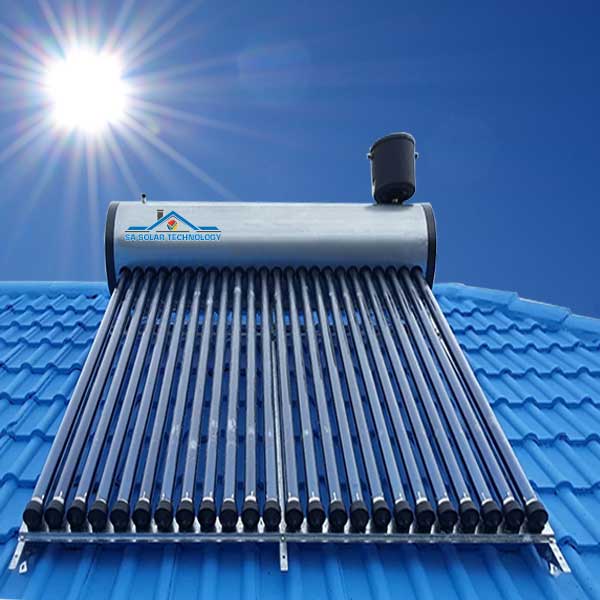Selecting the most efficient water heating system for your home is crucial for both energy savings and long-term reliability. Heat pumps and solar geysers have emerged as two of the best options for sustainable water heating. In this article, we will explore the benefits solar geysers and heat pumps for your home.

How Solar Geysers Work
Solar geysers use the power of the sun to heat water. Solar water heaters are made up of tubes and a water reservoir. They work by absorbing heat from sunlight, which is then converted into thermal energy. This makes solar geysers an eco-friendly electricity-based systems heat pumps.
Benefits of Solar Geysers
One of the main benefits of using a solar geyser is their ability to save energy. Because they use solar energy, they drastically reduce your home’s energy costs. Not only do they help save money, they are also better for the environment.
You’ll get the most out of solar geysers in areas with plenty of sunshine. During times of lower sunlight, many systems have electrical backup systems to keep your water heated.
Who Should Use a Solar Geyser?
Using solar-powered water heaters is ideal for homeowners seeking an eco-friendly solution. Homes located in regions with high solar exposure can get the most value from this system.
That being said, you should keep in mind the initial cost of a solar-powered geyser. While they reduce energy bills, the initial setup can be more expensive than traditional systems. You may be eligible for rebates to offset the cost.
Understanding Heat Pumps
Heat pump systems use thermal energy from the environment to heat water. Rather than generating heat directly, heat pumps move thermal energy. This makes them extremely efficient, because they consume significantly less energy compared to electric geysers.
Advantages of Heat Pumps
A key benefit to choose a heat pump system is its ability to save energy. By using less electricity, heat pumps reduce energy usage by up to 60-70% compared to standard electric water heaters. This translates to major cost savings on energy expenses.
Not only do heat pumps save energy, they are environmentally friendly. Since they don’t rely on fossil fuels, they reduce reliance on non-renewable resources compared to traditional heating methods.
When to Choose a Heat Pump
Installing a heat pump system is a great choice looking to save on energy bills. They perform well in regions with moderate temperatures, but they may require additional heating support in very cold regions.
Much like solar water heaters, heat pumps can have higher initial installation costs. However, the long-term energy savings make them a cost-effective solution.
Comparing Solar Geysers and Heat Pumps
Both solar geysers and heat pumps are great options for eco-friendly water heating. Each system offers different benefits. Let’s look at the key differences:
Energy Efficiency: Solar geysers use free solar energy, while heat pumps require some electricity but still save energy.
Upfront Costs: Solar geysers typically have higher upfront costs, but they offer substantial savings after installation. Heat pumps have a moderate upfront cost.
Performance in Different Climates: Solar geysers work best in sunny areas, while heat pumps work well in moderate climates.
Final Thoughts
Both solar geysers and heat pumps provide energy-efficient water heating options for those seeking sustainable energy solutions. If you live in a sunny area and want to maximize eco-friendliness. For those in areas with less sunshine, heat pumps can still deliver great energy efficiency.
Whichever system you choose, you’ll be making a smart investment and enjoy an eco-friendly water heating solution.